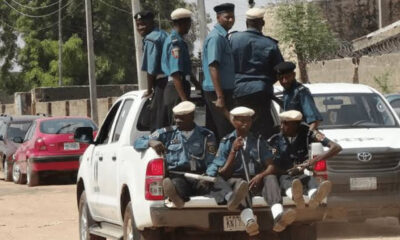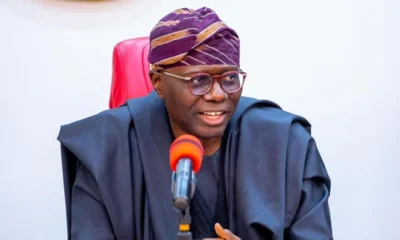News
Fuel scarcity hits Lagos, Kano, and other parts of Nigeria
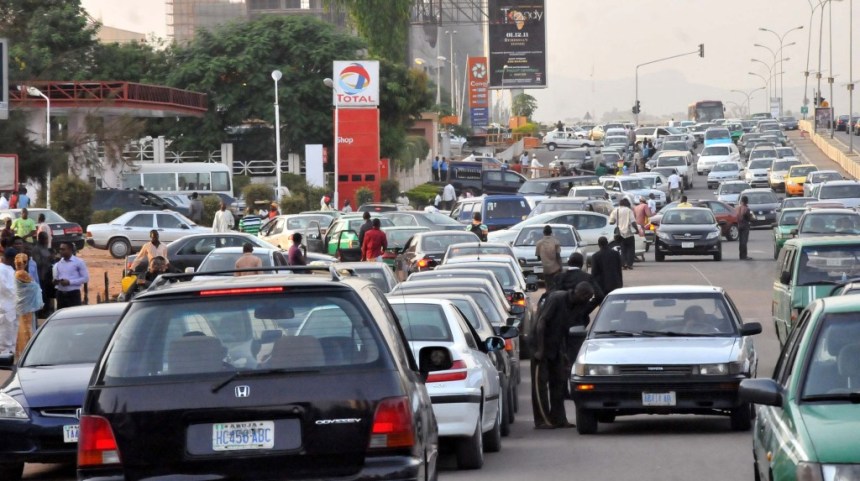
Fuel scarcity hits Lagos, Kano, and other parts of Nigeria
Long queues and fuel scarcity have begun to plague various parts of Nigeria, according to reports.
Across major cities such as Lagos, Kano, and Abuja, it has been observed that most fuel stations are either not dispensing fuel or are experiencing extended queues of vehicles.
In Kano State, commuters feel the pinch as commercial transport fares have surged due to the increased fuel prices. Signs of fuel scarcity started to emerge a few days ago, and it is now evident as many filling stations in Kano State have closed down, causing the pump price to rise.
Only a few filling stations are operational, but they are dealing with long queues. The price of fuel in these operational stations has surged to between N640 and N660 per liter, compared to the initial range of N615 to N620.
Tricycle operators, like Usman Umar, are concerned that they may have to halt their operations because people can hardly afford the elevated transport fares. Aminu Bala, a car owner, has already parked his car and opted for a motorcycle due to the high fuel prices.
Alhaji Gana Girgir, Chairman of the Independent Petroleum Marketers of Nigeria (IPMAN) in Kano, explained that many marketers had to close down their operations because of the recent increase in the landing cost of petrol and the surge in diesel prices.
READ ALSO:
-
Notorious gang members who murdered policeman in viral video land in trouble
-
Palestine exposes Western hypocrisy – Bayo Onanuga
-
Why we’ve not reopened Ladipo Market – Lagos govt
In Lagos State, many major filling stations in the Ikeja metropolis are not selling fuel due to a supply disruption across the state.
Akin Akinrinade, Chairman of the Independent Petroleum Marketers’ Association of Nigeria (IPMAN) at Ejigbo Satellite Depot, stated that the main depot supplying IPMAN has not been dispensing fuel for close to three months. He cited this as a result of the main supplier’s inactivity and the inability to approach private depots due to their pricing.
Meanwhile, independent oil marketers are requesting that the federal government grant qualified members access to official foreign exchange to import fuel. They argue that this would enable them to compete fairly with the Nigerian National Petroleum Corporation Limited (NNPCL) and break its monopoly.
Independent marketers have been operating at a loss at the current government-fixed fuel pump price. The NNPC is currently the sole company importing fuel into the country, even though the government has issued licenses to private companies. Access to the official exchange rate is currently limited for independent marketers, and the insufficient supply of dollars through the Investors’ and Exporters’ (I&E) window is exacerbating the issue. Additionally, freight costs pose a challenge, as the Nigerian Port Authority (NPA) and the Nigerian Maritime Administration and Safety Agency (NIMASA) require payments in dollars.
The Nigerian Midstream and Downstream Petroleum Regulatory Authority (NMDPRA) organized a meeting in Abuja to address these issues, seeking input from all relevant stakeholders in the oil industry to ensure fuel availability in the country.
Fuel scarcity hits Lagos, Kano, and other parts of Nigeria
News
U.S. Congress Submits Report to Trump on Alleged Christian Persecution in Nigeria

U.S. Congress Submits Report to Trump on Alleged Christian Persecution in Nigeria
The United States House Committees on Appropriations and Foreign Affairs have formally submitted a comprehensive report to President Donald Trump detailing their findings and recommendations on the alleged persecution of Christians in Nigeria and ongoing security challenges in the country.
The report follows President Trump’s redesignation of Nigeria as a “Country of Particular Concern” (CPC) under U.S. religious freedom criteria and was the result of months of investigation led by Congressman Riley Moore and House Appropriations Committee Chairman Tom Cole. The investigation involved hearings, expert testimonies, and bipartisan fact-finding missions to Nigeria.
Congressman Moore confirmed the submission on his X handle (@RepRileyMoore), noting that the report draws on on-the-ground assessments, interviews with internally displaced persons, meetings with government officials led by National Security Adviser Nuhu Ribadu, and consultations with religious leaders.
During the Nigeria visit, congressional delegates visited IDP camps in Benue State, assessed the impact of terrorist attacks, and observed first-hand the security risks facing Christian communities. Moore emphasized that the findings provide a clear picture of the threats in Nigeria, including attacks by Boko Haram, ISWAP, and armed militias, which have led to killings, abductions, and widespread displacement.
“This report underscores the urgent need for Nigeria to address these pressing security challenges and protect vulnerable communities,” Moore said. He also urged the Nigerian government to strengthen ties with the United States to jointly combat violence and ensure the safety of civilians.
READ ALSO:
- 15 Killed as Peruvian Military Helicopter Crashes During Flood Relief Mission
- Nigeria Allegedly Paid Boko Haram to Free Abducted Schoolchildren, Teachers – AFP Report
- Ijebu Ruling House Appeals to Tinubu to Resolve Awujale Stool Deadlock
Key Recommendations in the Report
The report contains specific recommendations aimed at protecting civilians and promoting security, including:
- Establishing a bilateral U.S.–Nigeria security agreement to safeguard Christian communities and dismantle jihadist networks.
- Conditioning U.S. aid on measurable actions by the Nigerian government to prevent violence against civilians.
- Implementing sanctions and visa restrictions on individuals or groups responsible for religious persecution.
- Providing technical and strategic support to Nigerian security forces to counter attacks by Fulani militias and other armed groups.
- Encouraging reforms of restrictive laws, including Sharia and blasphemy statutes, that may contribute to discrimination.
- Collaborating with international partners such as France, Hungary, and the United Kingdom to coordinate security and humanitarian responses.
Moore described the report as a blueprint for action, reflecting firsthand observations and expert consultations. “We hope this report will guide policy to protect innocent civilians, strengthen bilateral relations, and promote long-term stability in Nigeria,” he said.
The report has drawn attention to the complex security landscape in Nigeria, where religious and ethnic tensions, terrorism, and armed banditry continue to threaten communities, particularly in the northern and central regions.
The Nigerian government has previously rejected allegations of genocide or targeted persecution of Christians, describing such claims as misinformation, while reaffirming its commitment to combating terrorism and ensuring the security of all citizens.
U.S. Congress Submits Report to Trump on Alleged Christian Persecution in Nigeria
News
Tinubu to Governors: State Police Must Begin Now
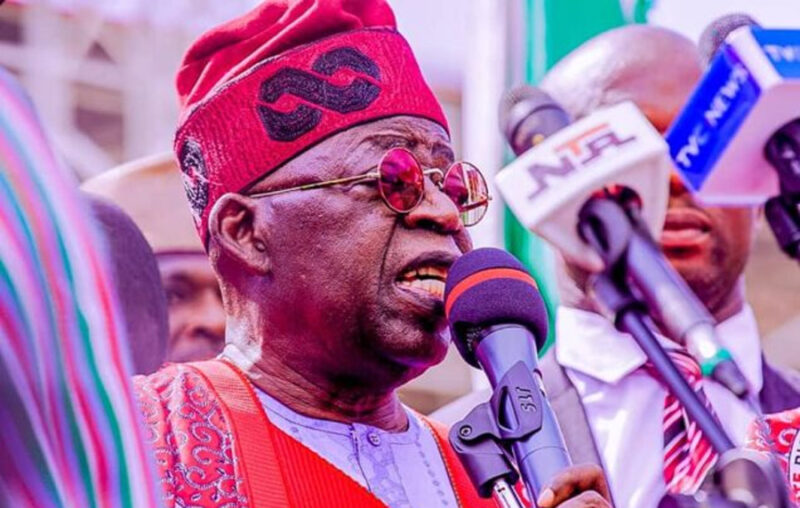
Tinubu to Governors: State Police Must Begin Now
President Bola Ahmed Tinubu has declared that the establishment of state police in Nigeria can no longer be delayed, stressing that urgent action is required to tackle rising insecurity, banditry, terrorism and kidnapping across the country.
The President spoke on Monday night after breaking the Ramadan fast (Iftar) with state governors at the Presidential Villa, where he said all levels of government must work together to reclaim ungoverned spaces being exploited by criminal groups.
“What I promised you will not be postponed. We will establish state police to combat insecurity. Start looking around you,” Tinubu told the governors, emphasising that Nigeria’s security challenges had reached a point where decentralised policing could no longer be ignored.
He reminded the governors that they had all, through deliberations at the National Economic Council (NEC), agreed on the need to create state police as a strategy to curb insecurity and protect communities. According to him, the consensus underscored the urgency of addressing widespread criminality that has disrupted livelihoods and instilled fear across many parts of the country.
Tinubu, however, acknowledged that critical issues such as funding, command structure, oversight, accountability and coordination with the Nigeria Police Force and other security agencies were still being worked out. He noted that these modalities must be carefully designed to ensure professionalism, prevent abuse and guarantee effective collaboration.
The President also urged governors to intensify grassroots development, saying neglect, unemployment and poverty at the local government level often fuel criminal activities. He appealed to state leaders to embrace inclusiveness and ensure that development opportunities reached the most vulnerable.
READ ALSO:
- Ten Killed in Coordinated Bandit Attacks in Plateau
- Police Dislodge Bandit Camps, Arrest Gunrunners in Kaduna
- BREAKING: Panic at MMIA as Fire Breaks Out at Old Terminal
- ADC Leadership Clash: Oyegun Bars Owie from Caucus Meeting in Edo
“Be all-encompassing. Let’s spread development opportunities to the grassroots and embrace the downtrodden, the young ones and all our supporters,” he said.
Describing the coincidence of the Muslim Ramadan fast and the Christian Lenten season as symbolic, Tinubu said the period reflected shared values of discipline, sacrifice and unity, urging Nigerians to continue to pray together and support one another.
Addressing internal political tensions, the President advised members of his party to exercise tolerance during ongoing congresses, stressing that unity and harmony were essential for national stability.
“Tolerate everybody. Let the young ones breathe. Build structures anchored on unity, harmony and sacrifice,” he said.
Acknowledging that criticisms and commendations would continue to trail his administration, Tinubu expressed optimism about Nigeria’s trajectory, saying the country was emerging from economic uncertainty.
“We are out of the dark tunnel of uncertainty. The economy is picking up. Let’s help those who are unemployed,” he added.
Responding on behalf of the governors, Imo State Governor Hope Uzodimma described the gathering as a symbol of religious harmony, unity and partnership between the federal and state governments. He praised the President for fostering political stability and strengthening collaboration with governors, pledging continued support for ongoing reforms.
The dinner was attended by Vice President Kashim Shettima, members of the Federal Executive Council, several state governors and senior government officials, including Chief of Staff to the President, Femi Gbajabiamila.
Tinubu to Governors: State Police Must Begin Now
News
U.S. Court Orders ICE to Release Nigerian Detained Since 2012

U.S. Court Orders ICE to Release Nigerian Detained Since 2012
A U.S. District Court in Minnesota has ordered U.S. Immigration and Customs Enforcement (ICE) to release Michael Opeoluwa Egbele, a Nigerian national who entered the United States illegally in 2003 and had been held under immigration detention since his arrest in 2012. The court ruled that his detention was unlawful due to prolonged enforcement delays and lack of proper legal notice.
Senior U.S. District Judge John M. Gerrard delivered the ruling on February 18, 2026, giving ICE until February 20 to free Egbele and file a status report confirming his release. The judge highlighted that ICE had no legal grounds to hold him, noting the unique circumstances of his long-standing supervision arrangement.
Egbele’s legal troubles began in 2012 after his arrest on a drug-related offence, which triggered deportation proceedings. At the time, he applied for asylum and requested that his removal be withheld, but his claim was denied, and he was issued a final deportation order in July 2012. However, ICE did not enforce the removal, and Egbele did not appeal.
Instead, he was released on supervision in December 2012, under which he was required to report regularly to ICE. This arrangement continued for more than a decade until January 2026, when ICE detained him during a routine check-in.
READ ALSO:
- Anambra Govt Shuts NASPA Market Over Sit‑At‑Home Defiance
- 2027: Bashir Ahmad Rules Out Kwankwaso as Peter Obi’s Running Mate
- EFCC Nabs 20, Seizes ₦17m Over Vote Buying in FCT Elections
Egbele argued in court that he was never notified of any revocation of his pre-existing order of supervision and was not given a legal explanation for his detention. ICE claimed the supervision was revoked partly because Egbele failed to obtain a travel document to Nigeria, as required under his supervision.
Following his arrest, Egbele was unable to contact his wife, a U.S. citizen, or his lawyer for several days. He was initially held at an ICE facility in Montana and later transferred to a detention center in New Mexico, with his location undisclosed for days.
The federal government argued that the Minnesota court lacked jurisdiction because Egbele was held outside the state, but the judge rejected this, stating that ICE could not unilaterally terminate a decades-long supervisory arrangement without due process. The court emphasized that Egbele’s right to proper notice and legal protections had been violated.
Judge Gerrard ordered that Egbele be released immediately under the conditions of his original supervision and directed ICE to file a compliance report by February 20, 2026.
Legal experts say the ruling highlights broader concerns about long-term immigration detention, due process rights, and the enforcement of removal orders in the U.S., particularly when individuals have established long-term ties or arrangements with immigration authorities.
U.S. Court Orders ICE to Release Nigerian Detained Since 2012
-

 Business2 days ago
Business2 days agoDangote Opens Refinery Investment to Nigerians With Public Share Sale Plans
-

 Education3 days ago
Education3 days agoUTME: JAMB Clarifies Position on Hijab During Biometric Capture
-

 Politics2 days ago
Politics2 days agoTinubu Hails Wike as APC Dominates 2026 FCT Area Council Elections
-

 Entertainment2 days ago
Entertainment2 days agoRegina Daniels Takes Delivery of ₦150m 2026 GAC Trumpchi M8 SUV
-

 Politics3 days ago
Politics3 days agoADC Defeats APC to Win First Polling Unit in FCT Area Council Election
-

 Politics2 days ago
Politics2 days agoFCT Council polls: APC Wins Four Chairmanship Seats as PDP Takes Gwagwalada
-
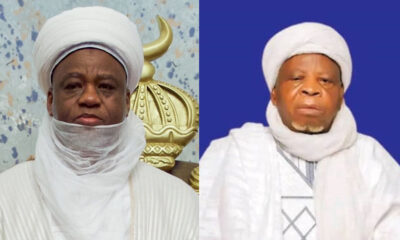
 News2 days ago
News2 days agoYoruba Muslim Group Dismisses Viral Ramadan Date Claim, Reaffirms Sultan of Sokoto’s Authority
-

 Politics2 days ago
Politics2 days agoOpposition Weakens as Another Governor Eyes APC Move



